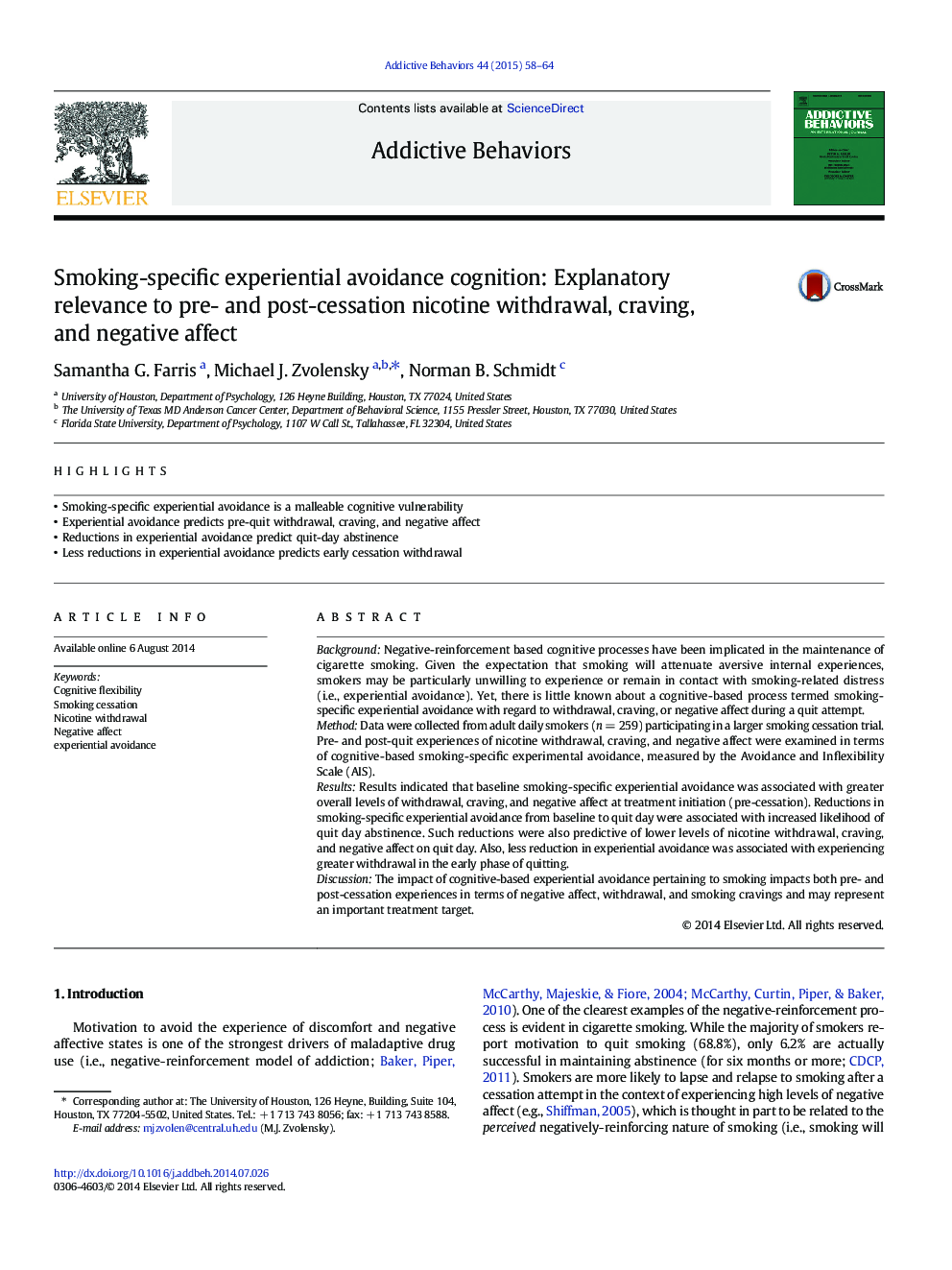| Article ID | Journal | Published Year | Pages | File Type |
|---|---|---|---|---|
| 898705 | Addictive Behaviors | 2015 | 7 Pages |
•Smoking-specific experiential avoidance is a malleable cognitive vulnerability•Experiential avoidance predicts pre-quit withdrawal, craving, and negative affect•Reductions in experiential avoidance predict quit-day abstinence•Less reductions in experiential avoidance predicts early cessation withdrawal
BackgroundNegative-reinforcement based cognitive processes have been implicated in the maintenance of cigarette smoking. Given the expectation that smoking will attenuate aversive internal experiences, smokers may be particularly unwilling to experience or remain in contact with smoking-related distress (i.e., experiential avoidance). Yet, there is little known about a cognitive-based process termed smoking-specific experiential avoidance with regard to withdrawal, craving, or negative affect during a quit attempt.MethodData were collected from adult daily smokers (n = 259) participating in a larger smoking cessation trial. Pre- and post-quit experiences of nicotine withdrawal, craving, and negative affect were examined in terms of cognitive-based smoking-specific experimental avoidance, measured by the Avoidance and Inflexibility Scale (AIS).ResultsResults indicated that baseline smoking-specific experiential avoidance was associated with greater overall levels of withdrawal, craving, and negative affect at treatment initiation (pre-cessation). Reductions in smoking-specific experiential avoidance from baseline to quit day were associated with increased likelihood of quit day abstinence. Such reductions were also predictive of lower levels of nicotine withdrawal, craving, and negative affect on quit day. Also, less reduction in experiential avoidance was associated with experiencing greater withdrawal in the early phase of quitting.DiscussionThe impact of cognitive-based experiential avoidance pertaining to smoking impacts both pre- and post-cessation experiences in terms of negative affect, withdrawal, and smoking cravings and may represent an important treatment target.
